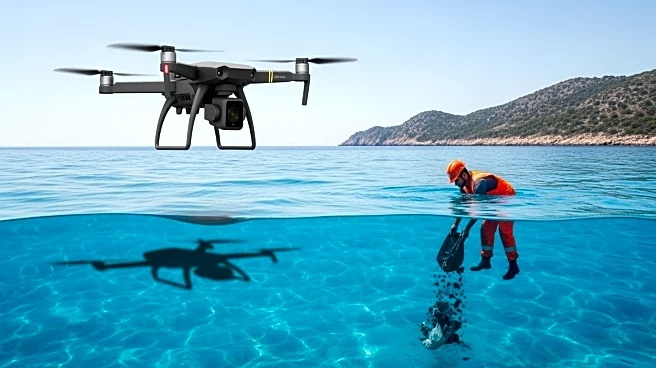What's Happening?
The Swedish Coast Guard, under the direction of Sweden’s Minister of Civil Defense Carl-Oskar Bohlin, has intensified its surveillance efforts, resulting in the detection of a crewmember dumping trash into the Baltic Sea. The incident involved a Liberian-flagged
bulk carrier, which was on a voyage from Russia to India. The crewmember was caught by a Coast Guard aircraft and later confessed to the offense when the ship anchored off Gothenburg. The individual was fined according to Swedish law, which bases fines on personal income. This incident underscores the heightened monitoring of maritime activities in the region.
Why It's Important?
This development highlights the Swedish government's commitment to protecting marine environments and enforcing maritime laws. The increased surveillance is part of broader efforts to monitor shadow fleet vessels and prevent pollution in the Baltic Sea. By holding individuals accountable for environmental infractions, Sweden sets a precedent for maritime law enforcement, potentially influencing other nations to adopt similar measures. The incident also raises awareness about the importance of maintaining clean seas and the role of surveillance in achieving this goal.
What's Next?
The Swedish Coast Guard is expected to continue its enhanced monitoring efforts, including regular surveillance flights and the collection of insurance information from ships passing through Swedish waters. This proactive approach aims to deter future violations and ensure compliance with environmental regulations. The incident may prompt other countries to review and strengthen their maritime surveillance and enforcement strategies. Additionally, the shipping industry may face increased scrutiny and pressure to adhere to environmental standards.
Beyond the Headlines
The incident reflects broader environmental and regulatory challenges faced by the maritime industry. As global awareness of marine pollution grows, there is increasing pressure on shipping companies to adopt sustainable practices. The case also highlights the complexities of enforcing international maritime laws, particularly in regions with high shipping traffic. The role of technology in monitoring and enforcement is likely to expand, offering new tools for detecting and preventing environmental violations.















